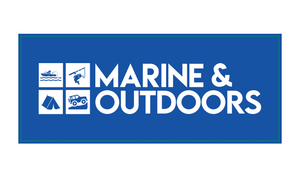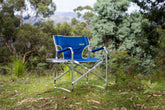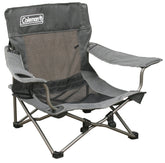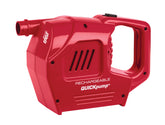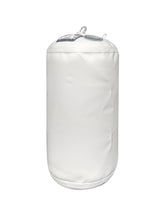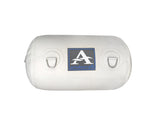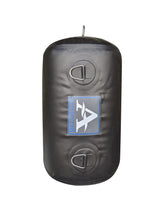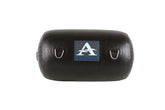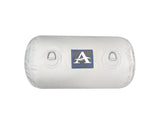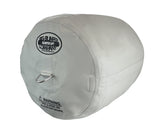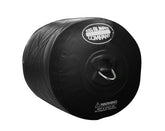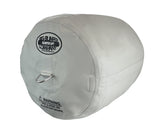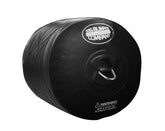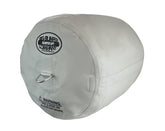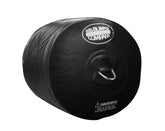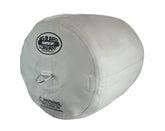Fenders & Accessories
Filter
46 results
20
- 10
- 15
- 20
- 25
- 30
- 50
Featured
- Featured
- Best selling
- Alphabetically, A-Z
- Alphabetically, Z-A
- Price, low to high
- Price, high to low
- Date, old to new
- Date, new to old
Sort
Sort by:
- Featured
- Best selling
- Alphabetically, A-Z
- Alphabetically, Z-A
- Price, low to high
- Price, high to low
- Date, old to new
- Date, new to old
-
Aristocraft Boat Fender White 48x25cm 1 D Ring
Aristocraft Boat Fender White 48x25cm 1 D Ring Aristocraft provide excellent support when needed but most importantly they pack away flat which when using traditional fenders can be quite the pain. The Aristocraft fender is very versatile; they have been used as on board...- $49.00
$99.00- $49.00
- Unit price
- / per
-
Aristocraft Boat Fender White 200x30cm 1 x D Ring
Aristocraft Boat Fender White 200x30cm 1 x D Ring Aristocraft provide excellent support when needed but most importantly they pack away flat which when using traditional fenders can be quite the pain. The Aristocraft fender is very versatile; they have been used as on...- $299.00
$499.00- $299.00
- Unit price
- / per
-
Aristocraft Boat Fender Black 200x30cm 4 x D Rings
Aristocraft Boat Fender Black 200x30cm 4 x D Rings Aristocraft provide excellent support when needed but most importantly they pack away flat which when using traditional fenders can be quite the pain. The Aristocraft fender is very versatile; they have been used as on...- $299.00
$399.00- $299.00
- Unit price
- / per
-
Aristocraft Boat Fender Black 200x40cm 4 x D Rings
Aristocraft Boat Fender Black 200x40cm 4 x D Rings Aristocraft provide excellent support when needed but most importantly they pack away flat which when using traditional fenders can be quite the pain. The Aristocraft fender is very versatile; they have been used as on...- $399.00
$599.00- $399.00
- Unit price
- / per
-
Aristocraft Boat Fender Grey 200x40cm 4 x D Rings
Aristocraft Boat Fender Grey 200x40cm 4 x D Ring Aristocraft provide excellent support when needed but most importantly they pack away flat which when using traditional fenders can be quite the pain. The Aristocraft fender is very versatile; they have been used as on...- $399.00
$599.00- $399.00
- Unit price
- / per
-
Aristocraft Boat Fender Grey 76x40cm 4 x D Rings
Aristocraft Boat Fender Grey 76x40cm 4 x D Rings Aristocraft provide excellent support when needed but most importantly they pack away flat which when using traditional fenders can be quite the pain. The Aristocraft fender is very versatile; they have been used as on...- $149.00
$299.00- $149.00
- Unit price
- / per
-
Aristocraft Boat Fender Black 76x40cm 4 x D Rings
Aristocraft Boat Fender Black 76x40cm 4 x D Rings Aristocraft provide excellent support when needed but most importantly they pack away flat which when using traditional fenders can be quite the pain. The Aristocraft fender is very versatile; they have been used as on...- $149.00
$299.00- $149.00
- Unit price
- / per
-
Aristocraft Boat Fender Black 95x50cm 4 x D Rings
Aristocraft Boat Fender Black 95x50cm 4 x D Rings Aristocraft provide excellent support when needed but most importantly they pack away flat which when using traditional fenders can be quite the pain. The Aristocraft fender is very versatile; they have been used as on...- $199.00
$399.00- $199.00
- Unit price
- / per
-
Aristocraft Boat Fender Grey 95x50cm 4 x D Rings
Aristocraft Boat Fender Grey 95x50cm 4 x D Rings Aristocraft provide excellent support when needed but most importantly they pack away flat which when using traditional fenders can be quite the pain. The Aristocraft fender is very versatile; they have been used as on...- $199.00
$399.00- $199.00
- Unit price
- / per
-
Aristocraft Boat Fender Black 225x60cm 4 x D Rings
Aristocraft Boat Fender Black 225x60cm 4 x D Rings Aristocraft provide excellent support when needed but most importantly they pack away flat which when using traditional fenders can be quite the pain. The Aristocraft fender is very versatile; they have been used as on...- $599.00
$999.00- $599.00
- Unit price
- / per
-
Aristocraft Boat Fender Grey 225x60cm 4 x D Rings
Aristocraft Boat Fender Grey 225x60cm 4 x D Rings Aristocraft provide excellent support when needed but most importantly they pack away flat which when using traditional fenders can be quite the pain. The Aristocraft fender is very versatile; they have been used as on...- $599.00
$999.00- $599.00
- Unit price
- / per
-
Aristocraft Boat Fender Black 230x80cm 4 x D Rings
Aristocraft Boat Fender Black 230x80cm 4 x D Rings Aristocraft provide excellent support when needed but most importantly they pack away flat which when using traditional fenders can be quite the pain. The Aristocraft fender is very versatile; they have been used as on...- $699.00
$1,499.00- $699.00
- Unit price
- / per
-
Aristocraft Boat Fender White 230x80cm 4 x D Rings
Aristocraft Boat Fender White 230x80cm 4 x D Rings Aristocraft provide excellent support when needed but most importantly they pack away flat which when using traditional fenders can be quite the pain. The Aristocraft fender is very versatile; they have been used as on...- $699.00
$1,499.00- $699.00
- Unit price
- / per
-
Big Bumper Fender 2ftx18 (60x45cm) Grey
Protect your boat, dock or marina with these large inflatable bumpers. Available black or grey, either 45cm diameter or 61cm diameter, in multiple lengths, these fenders can be mounted vertically or horizontally, enabling protection for any location. Size shown is Length x Diameter MPN:...- $337.00
$306.34- $337.00
- Unit price
- / per
-
Big Bumper Fender 2ftx18 (60x45cm) Black
Protect your boat, dock or marina with these large inflatable bumpers. Available black or grey, either 45cm diameter or 61cm diameter, in multiple lengths, these fenders can be mounted vertically or horizontally, enabling protection for any location. Size shown is Length x Diameter MPN:...- $336.00
$305.37- $336.00
- Unit price
- / per
-
Big Bumper Fender 2ftx24 (60x61cm) Grey
Protect your boat, dock or marina with these large inflatable bumpers. Available black or grey, either 45cm diameter or 61cm diameter, in multiple lengths, these fenders can be mounted vertically or horizontally, enabling protection for any location. Size shown is Length x Diameter MPN:...- $393.00
$356.89- $393.00
- Unit price
- / per
-
Big Bumper Fender 2ftx24 (60x61cm) Black
Protect your boat, dock or marina with these large inflatable bumpers. Available black or grey, either 45cm diameter or 61cm diameter, in multiple lengths, these fenders can be mounted vertically or horizontally, enabling protection for any location. Size shown is Length x Diameter MPN:...- $393.00
$356.89- $393.00
- Unit price
- / per
-
Big Bumper Fender 4ftx18 (122x45cm) Grey
Protect your boat, dock or marina with these large inflatable bumpers. Available black or grey, either 45cm diameter or 61cm diameter, in multiple lengths, these fenders can be mounted vertically or horizontally, enabling protection for any location. Size shown is Length x Diameter MPN:...- $423.00
$384.65- $423.00
- Unit price
- / per
-
Big Bumper Fender 4ftx18 (122x45cm) Black
Protect your boat, dock or marina with these large inflatable bumpers. Available black or grey, either 45cm diameter or 61cm diameter, in multiple lengths, these fenders can be mounted vertically or horizontally, enabling protection for any location. Size shown is Length x Diameter MPN:...- $423.00
$384.65- $423.00
- Unit price
- / per
-
Big Bumper Fender 4ftx24 (122x61cm) Grey
Protect your boat, dock or marina with these large inflatable bumpers. Available black or grey, either 45cm diameter or 61cm diameter, in multiple lengths, these fenders can be mounted vertically or horizontally, enabling protection for any location. Size shown is Length x Diameter MPN:...- $495.00
$449.57- $495.00
- Unit price
- / per

